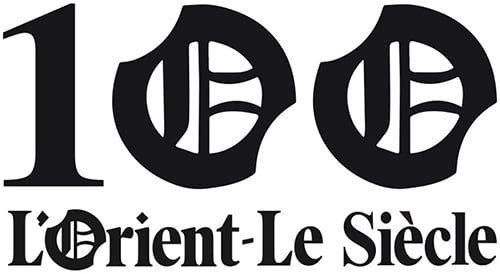The Voxe Team. Photo Thomas Salva
They may describe themselves as 'civic hackers,' but the Voxe.org team is only using the political information already available in the public sphere, and channeling it towards a wider audience. These modern day Robin Hoods are on a mission: they have created a comparative system, allowing users to compare the agendas of political candidates and make their proposals much more accessible to the everyday voter.
Launched in 2012, Voxe.org materialized during the French presidential elections as a tool for the general public. "Before even reaching the comparison stage, we realized that information is hard to find in this area," recounts Léonore de Roquefeuil, president and co-founder of the site, which received a grant from the Google.org foundation in 2015 to help continue their work.
One of the problems, of course, is that the political programs released by candidates come in a variety of formats, such as PDF, scanned documents and paper leaflets. Many of these agendas also contain over 50 different proposals, making the processing of these documents a daunting and arduous task. To handle this workload, Voxe.org has recruited a small army of volunteers; many of them politically engaged students.
For each election, the team has the task of transcribing all of the candidate agendas into a neutral format. The user of the comparator system can then choose a candidate or a theme and review the different proposals the candidate is offering, or they can compare them against other candidates to begin to form a political opinion. The overall objective of this system is to "provide citizens with the tools to be able to vote both clearly and calmly, without trying to sway or persuade them towards a particular agenda."
"Contrary to what we are often told, we know that candidates do not offer the same thing," continues Léonore de Roquefeuil. By expanding beyond the limits of its native country, France, Voxe.org has the potential to become a vital tool for voters in countries where access to information is limited. The comparative system is now active in 15 different countries worldwide, including several on the African continent, such as Côte d'Ivoire, Equatorial Guinea and Benin. "In these particular countries where there are no real press outlets, four of our volunteers can have an enormous impact," explains a member of the Voxe team.
The students and young people that make up the Voxe.org team of volunteers must be trained before they can be put to work. First things first, they need to be able to identify and collect the information, primarily by scouring through the official candidate programs, as well as their output on social networks. In certain countries, like the Ivory Coast where there are no political programs, the volunteers have no other option but to improvise, by sending each of the candidates a questionnaire to fill out.
The next step is the data entry, using an online platform provided for the volunteers. With the data in an open source format, they can then readily access and reuse it. The final step is communicating and disseminating their work, which is mainly done through media partnerships formed within the country where Voxe.org is operating. Thanks to these agreements, the Voxe widget has been listed on the websites of many major newspapers across the world, attracting the majority of its visitors. The site now has around 3.7 million users worldwide.
Voxe's most recent target is arguably one of the biggest on the planet: the United States, with the primary campaign currently in full swing and soon coming to a close. To break into the highly competitive American civic-tech market, the French Voxe team partnered with Laila Alawa, a young blogger of Syrian origin, who is now in charge of a Washington-based team of volunteers.
As well as the comparative system, the team has developed a visually engaging election guide, complete with videos and fact sheets showing the key issues, to help people better understand the presidential election. "The feedback so far has been good," says Léonore de Roquefeuil, who has travelled to Washington with the volunteers to help form agreements with both TV media outlets and the American press. "It is an important challenge for us, as it is an excellent opportunity to cement our international credibility."
Despite its international ambitions, Voxe has not forgotten about its French roots. "The current political climate in France as we approach the presidential election is very favorable to our line of work, with the establishment of movements like Nuit Debout," which is the French equivalent of Occupy Wall Street. In France, Voxe is also looking to increase the political engagement of the younger generation, who are, generally speaking, currently disgusted by politics.
As well as overhauling the design of the comparative system ready for the 2017 election, Voxe.org has a few other projects up its sleeve. Firstly, they plan on launching a political newsletter, Newswatch, with up to date information on what certain associations are doing, and what demonstrations, petitions and current topics readers might be interested in. Then there will be a second newsletter, currently called 'Happy Democracy,' which will be devoted to all of the most recent updates and news from the civic tech industry.
The final goal, which they aim to launch in the next year or so, is the Voxe Academy: a university dedicated to courses in digital and physical civics, which will teach its students "to become active citizens." With the world at its feet, Voxe.org has the opportunity to tailor its services to a variety of needs, with the aim of disseminating information as far and as wide as possible for the use of the general public.

commentaires (0)
Commenter